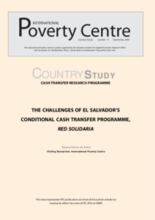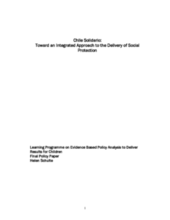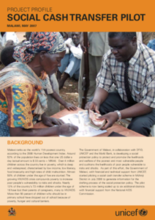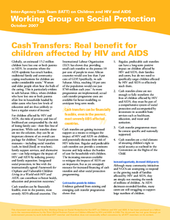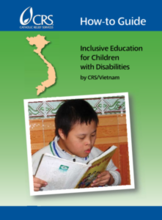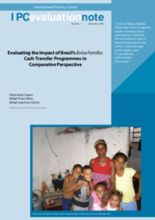Displaying 441 - 450 of 498
This resource is designed to be used as a guide for those in the Faith community working with orphaned children.
Country level evaluation of contributing factors to the establishment of an alternative care system.
Provides analysis of the historical background and current structure of El Salvador's conditional cash transfer programme with attention to family integration
Examination of Chile Solidario social protection programme which shows that the focus of policy makers and researchers should be on integration of cash transfers within broader social protection policies.
Brief overview of a project designed to give monetary aid to poor families. Program seeks to reduce poverty while promoting health and education.
This project reviews existing sources on multi-dimensional disadvantage or severe forms of social exclusion characterised as ‘deep exclusion’ for the purpose of recommending possibilities for secondary analysis of existing data sets to explore the
A 4-page advocacy document outlining the potential benefit of cash transfers in the context of children and AIDS.
A ‘How-to’ Guide, based on the experiences of CRS/Vietnam, that provides practical strategies and steps developing countries can take to build inclusive education programmes for children with disabilities.
Evaluates targeting and human capital impacts of Brazil's Bolsa Familia Program in comparison with Mexico's Oportunidades, and Chile's Chile Solidario.
Clear programme guidance on psychosocial support, with a special focus on infants and young children. Excellent explanation of psychosocial support models.



